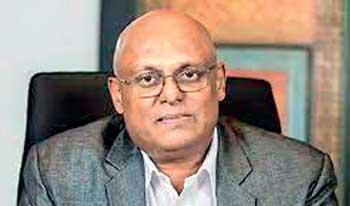Reply To:
Name - Reply Comment
By Shabiya Ali Ahlam
 The state-owned enterprises (SOEs) should be unchained from government control, regardless of whether they are profit or loss-making, if the benefits arising from their performance are to flow into the national economy, said Suresh Shah, the head of the SOE Restructuring Unit.
The state-owned enterprises (SOEs) should be unchained from government control, regardless of whether they are profit or loss-making, if the benefits arising from their performance are to flow into the national economy, said Suresh Shah, the head of the SOE Restructuring Unit.
He cautioned that it is “dangerous” to turn a blind eye to the profit-making enterprises when considering restructuring efforts, as there is no guarantee they would continue in the same path going forward.
“Today’s profit-making SOEs could become tomorrow’s loss-making entities. So, are we going to wait for them to become loss-making to consider restructuring,” Shah told a webinar hosted by the Centre for Banking Studies, yesterday.
The government’s efforts to restructure the profit-making SOEs recently came under strong criticism. Political parties and trade unions have raised concerns, particularly on the restructuring of the national telecommunications service provider, Sri Lanka Telecom, where they continue to stress that there is no need to interfere with profit-making enterprises.
Responding to the criticism in this regard, Shah clarified that profit or loss-making is not the criteria taken into consideration when looking at restructuring the SOEs.
“Profit or loss-making is not how the decision (to restructure) is made. The decision is made based on if there is a market failure or not. That is, the operative environment is not competitive and the consumers do not get the benefits,” explained Shah.
He stressed that the government has no business in engaging in profit-making activities and by doing so it is steering away from its mandate.
Shah went on to clarify that although some SOEs are making profits, unless dividends are declared, the government does not get the excess funds generated.
According to the data shared by the SOE Restructuring Unit, over the last 10 years, the dividends declared by the SOEs, including the state banks, works out to only about 0.5 percent of the total revenue gained.
The government stands to obtain higher revenue by collecting taxes (Value-Added Tax and income tax) from the SOEs. Once unchained, with increased productivity and efficiency, what you lose from dividends you would more than compensate from the taxation component, said Shah.
“From purely cash flow terms, this story about profit-making and loss-making SOEs doesn’t hold water. The biggest danger in making this case for profit and loss-making enterprises is that you are starting to focus the government on profit. When that is done, it ignores its fundamental responsibility of providing services to citizens,” he asserted.